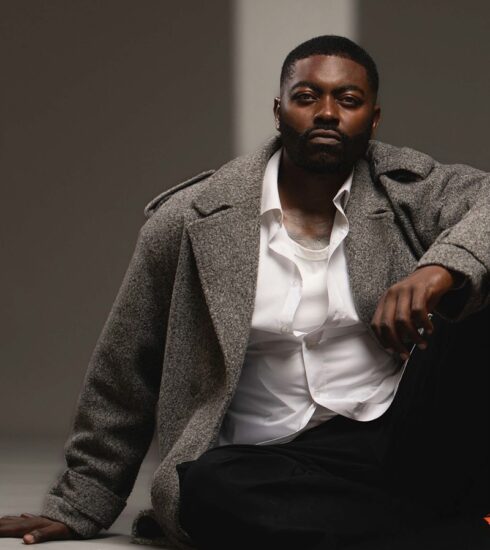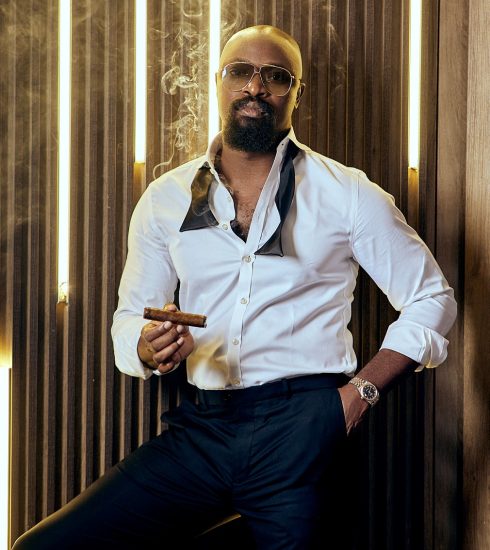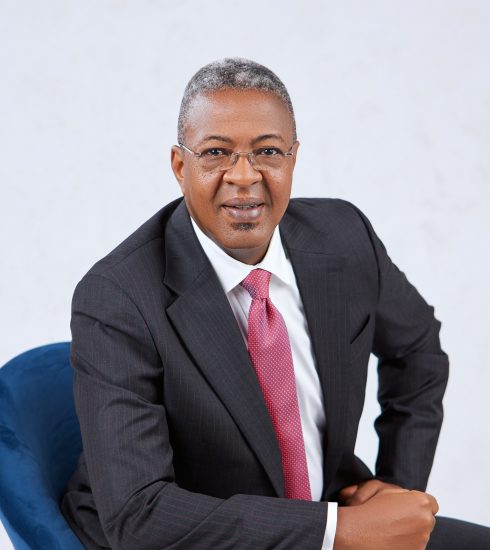Abimbola Craig Telling Impactful Stories Through Film
Abimbola Craig is very special; I’ll just say that first. We had lunch, our very first date after a long talking stage via Instagram DM and her occasional IG Live sessions, and we spoke for hours, but it felt like no time had passed. In case you didn’t know, she’s not just Tiwa from your favourite Skinny Girl in Transit show; she’s also a powerhouse of talent who has worked on other monumental projects like Real Housewives of Lagos, Glamour Girls (the 2022 remake), Sugar Rush, to name a few. What started as an interview for the position of social media handler has become a journey of growth and exploration for this talented lawyer who has become a thought-provoking filmmaker with the passion and self-awareness we all need to live a life of impact and authenticity. A straight shooter and “tell it like it is” kind of girl, we can all learn something from Abimbola, so get ready to leave with gems when you’re done reading this.
In this interview, THEWILL DOWNTOWN’s Lifestyle Editor at Large, Eki Ogunbor, talks to Abimbola Craig about life in the Nollywood industry, wearing many creative hats with acting, producing, and living a life that she will be proud of.
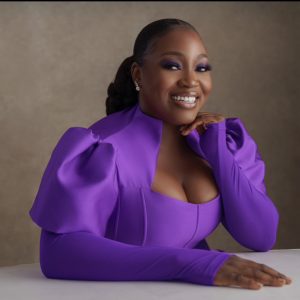
What sparked your interest in producing and acting, leading you to take on the lead role in Skinny Girl in Transit (SGIT) and producing projects like Real Housewives of Lagos (RHOL)?
When I went to Ndani for a job, I had no clue about the position that would be given to me, but I applied for the role of social media handler. During the interview, the question was, “What are you good at?” I just found an opportunity to say what I was good at. I’m good at delegating, I’m good at being delegated to, problem-solving, and I have a knack for leadership. They figured I was overqualified for this social media handler role, and when you come back, we’ll start you off as an assistant producer. I had no clue I’d land a producer job. All I knew was I was tired of law, and I just wanted something exciting in a way different from law. Different from wearing black and white and just sitting at a desk and typing, going to court. I wanted a bit more va-va-voom, and I didn’t know what that was, but I just felt like these people might be it. So, I was willing to take a role as a social media handler to try something different. After all, you never know if you don’t try, right?
How has your journey evolved from initially being the producer to eventually becoming the lead actress in SGIT?
One hasn’t evolved without the other because even though I didn’t necessarily produce season 1, I was involved in the first-ever pilot of the show before it was finally shot. The way we worked at Ndani then, all producers and everyone on the team were always involved in everybody’s work. So, to have started from just acting in season 1 to producing seasons 2 through 6 and still being the lead actress, it’s been a very surreal and interesting journey. Definitely very humbling, but I’ve also been blessed to have been able to cast really amazing individuals as the characters that you’ve seen on screen. I’ve also been very blessed and fortunate to work with amazing crew hands who are equally as invested in wanting excellence. And most importantly, I’ve been blessed to work with scriptwriters who see the vision of the possibility of where this show has gotten to. So yes, it’s been an amazing journey.
When you’re on set as a producer, and you’re called on as Tiwa, how’s that transition for you? What do you have to do to make that change/transformation?
Honestly, transitioning from wearing your producer hat to having to drop it to wear your actor’s hat is never easy. In the past few seasons, I’ve been blessed to work with a really special person and director that I admire, Bunmi Ajakaiye, who is also great at her craft and a good friend of mine. So every once in a while, when I’m overwhelmed with the work of being a producer and have to switch roles, she comes to my ears and whispers, “Bimbo, remember that you want this season to be great. Remember that you’ve tried, and we’ve all scripted this character to be so and so. I need you to take a second, leave this place, go run your lines, come back and give it to me.” So those little reminders and seeing the audience’s reactions to each season, “Oh my gosh, Tiwa has grown so much,” it gives me joy. I won’t lie; it’s not been easy because the perfectionist in me always has my producer hat on where I’m looking at the smallest details. When you’ve been blessed to have an amazing audience like the SGIT fans who don’t miss out on anything, you have no choice but to make sure that you’re not caught slipping. It’s not been easy, but we’ve found a balance to it.
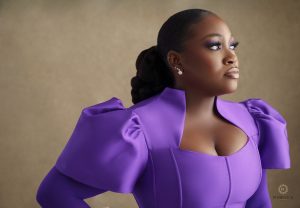
Can you share a memorable experience from your time working on RHOL, and how is working on a reality TV series different from a TV series/movie set? Do you have a preference?
I don’t have preferences. I remember when I was first approached to work on The Real Housewives of Lagos project, I said I was definitely excited about it because it’s very different from what I’m used to. First of all, the format is different. It’s reality TV. I see it, I watch it, but I’ve never thought about what it would take to produce a show, and I was very fortunate to work with amazing co-producers, crew, and a great cast. God is just wonderful. RHOL was surreal to me. A memorable experience has to be when we were shooting in Dubai. Some of the crew had come a few days earlier to start prepping locations and other things, and in Dubai, you can plan something and then they tell you you cannot shoot there; you don’t have access, you can’t use drones. So it was a situation where we had made all these plans from Lagos, only for us to get into the terrain and be told this and that can’t happen, so most of what you see on TV, we just had to wing it. Having an amazing crew that was dedicated to getting the job done, even in cases when we could sneak in a camera into a little space and shoot it, was amazing. Having a cast that was also willing to bring their A-game because, you know RHOL is not a scripted show, so there are times when there’s tension, and these people are not actors in real life, so they’re also tired as well. The minute you hear, “No, you can’t do this”, you’re just willing to shut off, but these ladies were willing to wear their big girl pants at every point in time to push through. It was very interesting because you go on set, and you just never know what’s going to happen even though you’ve made plans. And with the storyline, even though you’ve planned the location and set up for a pyjama night, you’re ready, and one person just says something while filming, and it just changes the course of the whole night. It was definitely one for the books, and I’m hoping I get to do another reality TV series soon.
What lessons have you learned from being part of the entertainment industry, and how have they influenced your personal growth?
I’ve learned a lot of lessons. I don’t think there’s anyone in any industry (Hollywood included) that doesn’t have both their personal and professional lives intertwined. I can’t speak for anybody, but I think the only reason I’ve been able to navigate it is just self-awareness. Whatever industry you’re in, it’s a very important, pivotal thing to have at the forefront: knowing who you are at the core of it all. I think as Nigerians, when we hear the word creative, creative space, and entertainment, people just think it’s a playground; you just come there and you just laugh. For me, it’s not. Maybe coming from a place as structured as law, when I’m talking or working, everything just has to be structured. So in terms of how I handle work as well, when it’s time to play, I play; when it’s time to work, I work. If you ask people I’ve worked with, they’ll tell you that I’m stern when it comes to work; I don’t play around. People have given me things and I’ve promised that I can deliver, and once my name is on the line, if it’s not at a 100%, I’m not putting it out.
Are you a perfectionist?
I don’t think I’m a perfectionist. I think I do try to aim for perfection, and that’s not my fault; blame it on Jesus (we both laugh). He’s perfect, and as a child of His, the goal is to be like my father. However, in the industry we are in, there are so many things that play into why certain things are not perfected. I’m not the executive producer of half of the work, if not all of the work, that I do. And so there’s a say in that aspect that influences the outcome of things. Even though I cast certain people, I’m not the only one involved; there are so many things that play into it that lead to lapses sometimes in terms of attaining perfection. But the goal is always to try and make things as clean and above standard as possible. Excellence is always the goal.
Are there any specific characters or stories that have left a lasting impact on you, either as an actress or a producer?
Two years ago, a colleague of mine was joking and said he was in a conversation with some Nollywood people, fans, audiences, and colleagues, and they said, “If the story doesn’t have a moral ending, ah, Bimbo will not touch it.” And I guess for me, growing up, I remember shows like Tales by Moonlight and others alike, and how you always leave with something. For me, when I touch things, I try to leave you, the audience, with something. I’m very thankful that I’ve been fortunate with most of the work I’ve done to get people thinking and get their minds racing a bit and make them question a few things. The other day, someone sent me a message talking about SGIT and said, “I watch it with my husband every Tuesday. We learn something, we see something from all the characters,” and those things are very important to me. I remember when my dad was passing, one of the last things he said before he stopped talking was, “When you die, what will the world remember you as?” And when people ask what is one of my biggest fears, I tell them it is to leave the world impactless. I feel like you’d have done yourself a disservice if you didn’t try to impact lives, and I’m thankful that I’ve been blessed to tell impactful stories and work with people who are also interested in telling stories that have been impactful to people. And that’s the legacy.
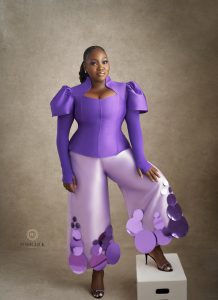
What’s one of the most impactful stories you’ve told through film?
I think the most pivotal story for me that comes to mind right now is Fractured, the short story with Eku Edewor and the late Karibi Fubara (may his soul rest in peace). It was a situation where the couple was suffering from infertility, and typically, what society would expect is to put the blame on the wife. It’s always the woman, but the husband was able to take the reins and challenge his mother to say, “Listen, I’m the one who has low sperm count.” Stories like that are very important, and there are so many things a lot of us are going through. If we just had conversations about it, you’d realise that you’re not alone. So for me, those are the things I try to push the envelope with a bit more. To have these painful yet very necessary conversations because, as Nigerians, we run away from depth in conversations, and I don’t blame us. The world is hard; the country is hard, and people are going through it. They’d rather just laugh than cry, but sometimes you have to be able to sit in it. You need to be able to sit in it and be uncomfortable in it; then when you’re uncomfortable enough, you now want change.
Can you share some insights into your creative process, both in front of the camera and behind the scenes as a producer? Are there any prep rituals you have?
Prep comes when it comes to production because it’s due diligence. Once you’ve come up with the synopsis, I sit down with the scriptwriter and tell them my ideas for this season. Then together, we start to break down each character, and we start scripting. When that happens, we go back and forth until we have what we call the final script. Once we do that, we go straight into pre-production: location scouting, costuming, hair, everything involved in the entire process of pre-production. Eventually, you move into principal photography, and you’re shooting for x amount of weeks. When that’s over, you go into editing mode. It’s a lot. But in terms of acting, I barely have enough time. I think this season 7 is the first time I’m on board just as an actress and I’m not involved in the production aspect of things. I’ve been able to sit down, read what is expected of my character, and spend time with my director, telling her how I intend to portray this character this season. And I’m sure people will notice that Tiwa is a bit more relaxed; she seems to smile a bit more. I could do this before, but the way Tiwa was scripted in the beginning was a lover girl but also a hard girl. But there’s something about childbirth that softens a woman, and so Tiwa has stepped into this feminine era where she’s given birth to this child; she loves the child. She sees the softness in her husband; he feels her softness, too, because when you bring a child into this world, it changes everything. So I’m thankful to be able to come back as Tiwa and show that side of her. I’m very excited about this season.
How do you find a balance between your public persona as an entertainer and your private life?
I firmly believe in controlling your narrative. I’m very in charge of making sure I’m aware of what’s being put out there. I don’t necessarily give interviews, take photos, or attend functions anyhow. I understand that’s some people’s MO, but for someone like me who is very big on character building and staying true to who I am because I know the life I want to live in the future, I’m intentional about making sure that I control my narrative. So, everything you see out there, best believe it is because I allowed it to be out there. I think there’s a way in which you can. But some people don’t always take the time to figure out how. If you do, you’ll find that there’s a balance, and sometimes it might not be favourable to your fans or whoever. But if at the end of the day you remember that in the end you’re just work to these people and you want to have a life that is full, then you would find a balance.
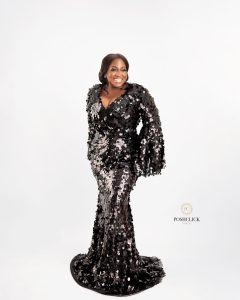
Can you discuss the impact “Skinny Girl in Transit” has had on your career and personal development?
For me, at the end of the day, work is work, and I don’t feel like I’ve scratched the surface. So it’s hard for me to sit and appreciate the things. Call it imposter syndrome. It’s not that I don’t think that I’ve done things; it’s just I don’t think I’ve scratched the surface enough, and there’s still room for so much more because I want to do so much more. So it’s hard for me to feel like I’ve arrived. When people ask me questions like this, I never know how to answer. But in terms of just impact in itself, I think, thankfully, because I’ve worked with great people and my attention to detail, it’s been able to put me out there to a certain level where I’ve been able to get work like Sugar Rush, Glamour Girls, RHOL, and now people see that this person has great work ethics and a great network. I’m thankful because there’s no work you’ve ever done that’s ever too small; the right people will find out, and when they see it, they’ll want to know who is behind it. So, just working at Ndani, generally speaking, has been very impactful in bringing me how far I’ve gotten in my career because I was very blessed to work for a company like GTB that has given me a lot of legroom to be able to stretch, grow, learn, and unlearn, and that was just a blessing to be able to work on that kind of platform. So now, it has shaped me into the kind of person, producer, and filmmaker that I want to be because I’ve had room to experiment, grow, see, and explore. So now the real reason I left is that I want to do more, and sometimes you outgrow certain places, and you think, let me see how far I can stretch this to, and that’s the journey I’m on right now. Still being a great filmmaker but also expanding myself as a brand, and that word “brand” makes me flinch a lot, but in hindsight, it’s exactly that. Being a well-rounded person who can offer quite a range of things: I act, produce, direct, compere, host. It’s not easy to have the ability to unlock all of that. So when you’ve harnessed all that, it’s time to express it.
What advice would you give to aspiring actors and producers based on your own experiences in the industry?
Don’t wait for anybody. Nollywood is big, and it’s getting bigger, but we’re not there yet. Because of that, I think people believe there’s a template for entering this industry, but there isn’t. I came into this industry very fortunate but very green, very unaware, and now there’s still no template; nobody has a rulebook on how to navigate the system. But one thing I know is there are two choices. There are paths that people have taken that if you choose to follow, you can follow the same path. However, just know your results are going to be very different, or you make your own path, and I tell a lot of people that. Don’t wait for people. If you feel that there is something burning within you and you feel like you want to do it, go for it. And going for it doesn’t mean you have to go down the same path people took. People are different. Some wait until everything is in place; don’t. Just start. You want to be an actress? If you’re able to go for auditions, then go for auditions. If you’re not able to go for auditions, then start doing auditions by yourself and posting them online. Eventually, the right person will see it. If you want to be a filmmaker and no one is willing to take a risk on you, take a loan, use your camera; people are shooting entire films now with their phones. Just do it. There’s no rulebook to how; all that matters is that you start, and that’s my advice to anyone.
In what ways do you see the entertainment industry evolving, and how do you envision your role within it in the future?
I guess just doing what I’m doing right now. I’m a firm believer in collaboration, and I advise everybody to understand what it is. However, I think collaborations can be what you let them; it can be how you define them. If you know that you’re an asset to something and you know there’s something that you bring to the table, offer it, and make sure whoever you’re offering it to can equally bring something just as great. Never offer anything for free. I think if you know your value, you should definitely always state your worth. But I’m definitely excited for the industry. I think that we’re just scratching the surface; I don’t think we’ve peaked yet. I think there’s so much that we can do. When I think about entertainment in Hollywood and how it constantly keeps transitioning, it’s filmmaking, it’s short films, it’s podcasting, it’s documentaries; there’s so much, and we haven’t scratched the surface yet. As much as everybody is with a microphone right now, podcasting is still so untapped. I’m not talking about on a small level; I’m talking about a grand level of impactful podcasting, entertaining podcasting. Sometimes, I sit and watch some shows, and as small as they are, there are so many things that they do in the entertainment space, even in the UK. So there’s still so much that we can do in terms of entertaining people even beyond just film. If this young generation sits down and thinks about it a bit more, they will see that there’s so much room for everybody to grow and more.

Eki Ogunbor has a Vogue Fashion Certificate from Conde Nast College of Fashion & Design and also attended Central Saint Martins, London College of Fashion and the University of Kent. Eki headed the Design Operations at a top Nigerian womenswear fashion brand before developing her own brand, KISARA. She is the Editor-At-Large at THEWILL DOWNTOWN.




